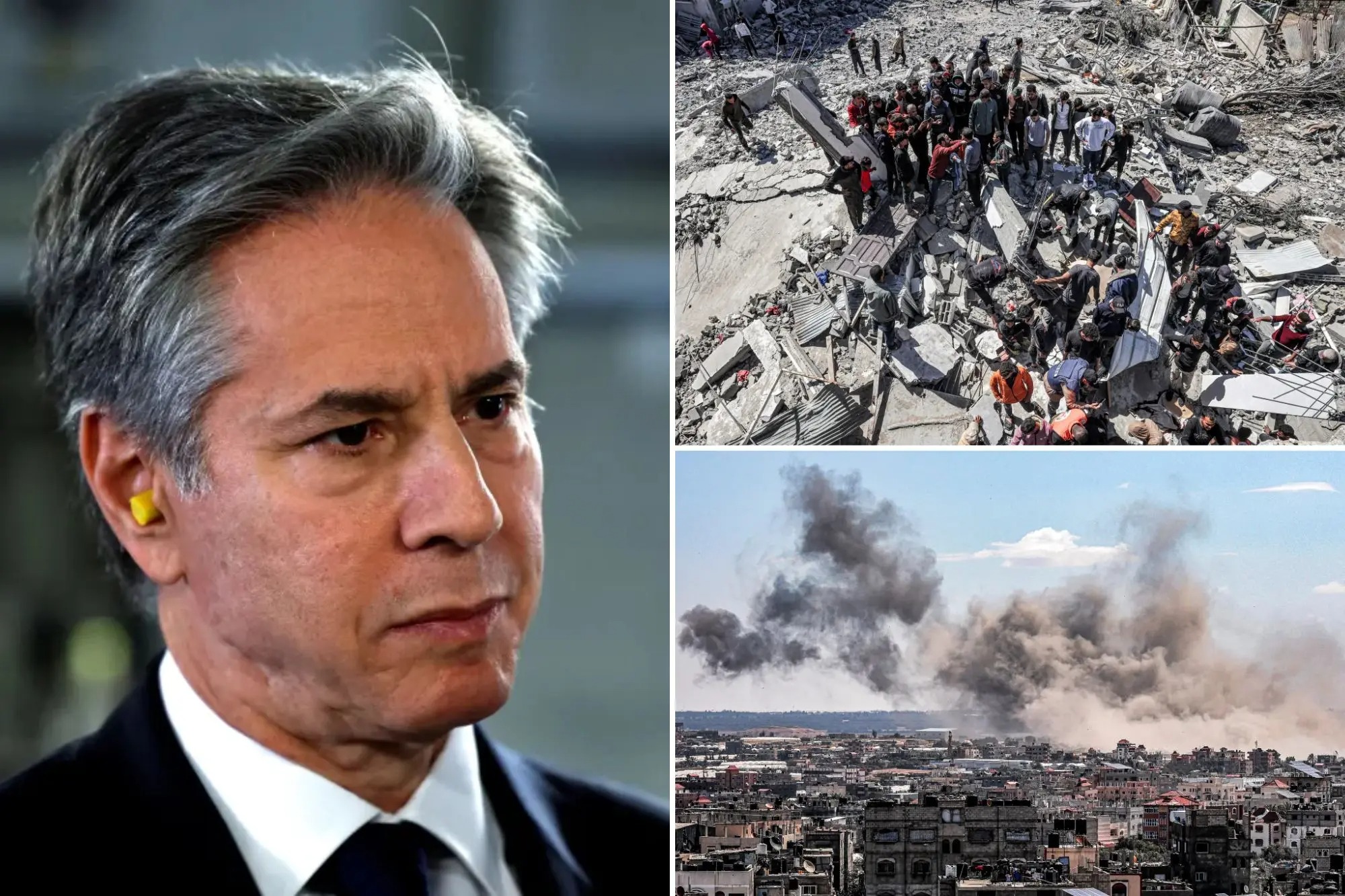Secretary of State Antony Blinken announced that the United States has presented a draft resolution to the United Nations Security Council calling for an immediate cease-fire in Gaza.
In an interview with Saudi news channel Al Hadath on Wednesday, Blinken emphasized that the cease-fire proposal is linked to the release of hostages held by Hamas.
“We have put forward a resolution before the United Nations Security Council, calling for an immediate cease-fire tied to the release of hostages, and we hope that countries will endorse it,” he stated. “I believe that would send a strong, clear message.”
Blinken disclosed that the United States is collaborating closely with Qatar and Egypt to broker a cease-fire agreement, departing from past U.S. positions.
Secretary of State Antony Blinken (Credits: Arab News)
In February, the United States stood alone in voting against a Gaza cease-fire resolution at the United Nations, led by Algeria and supported by other Security Council members, with Britain abstaining.
Earlier this month, Hamas temporarily withdrew from cease-fire negotiations in Cairo, insisting on a permanent cessation of hostilities before considering the release of Israeli hostages.
Blinken expressed optimism that progress is being made in narrowing the differences between the two sides. “I believe an agreement is very much achievable,” he asserted. “We have worked diligently with Qatar, Egypt, and Israel to present a robust proposal. Although Hamas initially rejected it and made additional demands, negotiations are ongoing. I am confident that a resolution is possible and necessary.”
The State Department emphasized on March 7 that a cease-fire in Gaza serves the interests of both Israel and the Palestinian people. Blinken reiterated the United States’ support for Israel’s right to defend itself while prioritizing the protection of civilian lives in Gaza. “It is vital that civilians in harm’s way are safeguarded and provided with humanitarian assistance,” he emphasized.
US submits UN Resolution (Credits: The Independent)
Regarding aid delivery to Gaza, Blinken stressed the importance of establishing a maritime corridor to supplement ground shipments, which have faced obstacles from Israeli forces.
“Ensuring access to assistance via sea routes is crucial,” he remarked. “We have witnessed ships delivering aid to Gaza, and we are working to establish a port capable of receiving substantial aid shipments.”
As the United Nations warns of potential mass starvation in Gaza, humanitarian efforts, including a 200-ton food shipment by World Central Kitchen, underscore the urgency of addressing the humanitarian crisis in the region.
“The maritime corridor is essential for delivering aid to the people of Gaza,” Blinken concluded, emphasizing the need for coordinated efforts to provide vital assistance to those in need.
